Why Does The Sex Pistols’ Music Rarely Get Talked About?
A new compilation reveals a hard-working group that refined their debut album’s songs over time.

The Sex Pistols’ success and notoriety is credited to their debaucherous public stunts, of which the English press was in equal measures fascinated and mortified. But that’s only half the story. If they were not masters of unimpeachably tight punk songs, musical talents as much as they were lawless ruffians, there would be no legend.
For many, The Sex Pistols are chaos incarnate. The tale goes something like this: With little more than a few demos under their belt, the band arrived out of nowhere, savage punk provocateurs, caged animals you wouldn’t want unleashed in your town. As a result of their perceived dangerousness, EMI dropped the Sex Pistols as quickly as they signed them. Then A&M called. Then they dropped them. Virgin Records came next, as did the release of “God Save the Queen,” an anti-monarchism, “no future” kiss-off timed to the Queen’s Silver Jubilee. Dressed in ripped shirts and safety pins, the band championed the working class with their sonic rebellion. (According to Westwood, the look was invented by bassist Sid Vicious – he owed some guy money, that guy destroyed his belongings, and so Sid had to pin his pants together.) Angsty attitude delivered in a cheeky package at a time when many were on the dole, the Sex Pistols offered a deep reflection of societal failures. It was lightning in a bottle that – when it burst – scored them a No. 1 album in the UK. (Even though many stores refused to carry it.)
But if you really listen to Never Mind the Bollocks, Here’s the Sex Pistols, what you’ll hear is an amazingly polished album, counter to the band’s public image. It is remarkably listenable, melodic, and full (courtesy of Chris Thomas’s production), elevated by Steve Jones’ overdriven guitars and front man Johnny Rotten’s venomous snarl, a sneering almost sprechgesang parroted by bands for generations. Nearly every accessible sub-genre of punk that follows is indebted to it, and them. (Really! It is impossible to listen to an early demo of “I Wanna Be Me” and not hear echoes of generations of pop-punk in those power chords.)
Listen to Sex Pistols 76-77 now.
Sex Pistols 76-77, which compiles 80 Pistols tracks recorded between May 1976 and September 1977, focuses squarely on the music, underscoring the band’s prescient, inventive musicianship. Take, for example, Johnny Rotten’s Cockney vibrato. Across the release, his voice never wavers in tenacity. A perfect lyrical distillation for teen angst, the theatrics of societal rage, a jagged dismissal of fascism, delivered with a dirty English accent, Rotten’s performance was a foundational element of UK punk. Unlike, say, Led Zeppelin’s Robert Plant, who would add hard “R”s to sound more American when he sang, Rotten’s performance was that of a hyperbolic Brit: the band was obsessed with protesting a failed political system, and the best way to articulate that frustration was through singing with the tone of the guy you would want to get in a fistfight with down at the pub. He’d likely chalk it up to a lack of classical training, or a hatred for glossy stadium rock, but make no mistake – it’s just as intentional as the group hoping “God Save The Queen” would reveal the fallacy of rigid class systems.
Then there’s the instrumentation itself: Jones’ raw guitar, played with a reverb amp turned to 11. Glen Matlock’s venomous bass and simple structures. Paul Cook’s meticulous drumming – well beyond the simple d-beat that would come to define 80s hardcore – and the tribal toms on “Pretty Vacant” (a trick also present on the Spunk bootleg version of “Lots of Fun”). These demo tracks are the sound of coded optimism (and not just in “Submission”) that speak truth to power. It is the ideal of anarchy as utopia that comes across in those chords. But the ultimate beauty, of course, is the live tracks: the closest any one of us of a certain age will ever get to seeing the Sex Pistols play music on stage. As iconic as Never Mind the Bollocks was, every member of the band will tell you: they were meant to be experienced in a dodgy club somewhere.
One year after the Sex Pistols released Never Mind the Bollocks, Sid Vicious would die from an overdose. John Lydon (the days of Johnny Rotten behind him), fed up with a perceived lack of authenticity in the punk scene, would shout, “Ever get the feeling you’ve been cheated?” at San Francisco’s Winterland on January 14, 1978, announcing the end of the band. (The statement also alluded to his future project, the avant-funk post-punk Public Image Limited. Because what comes after your three-chord era if not art-y, high-brow experimentalism? That shift is something many punks would inherit.) Clearly, this was a group with the talent to broaden the scope of alternative music forever.
History can be shortsighted: the Sex Pistols, a band so beloved for their music, their live show, and their ideology, is eclipsed by their mythology. But to turn punk rock into something beloved worldwide, the songs still had to be powerful. Sex Pistols 76-77 shows us how they got there.


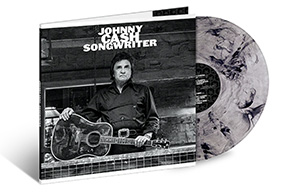
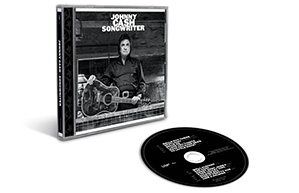




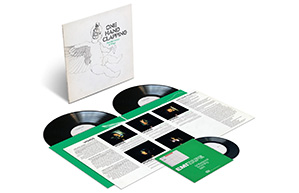
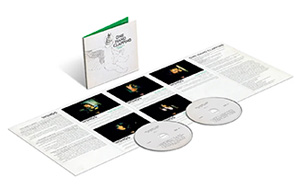
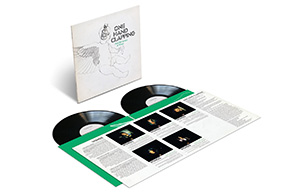
Stannon Redge
October 10, 2021 at 2:39 am
Mar. Rotten was the weak link. Could we have a “Never Mind…”naked”?
Stannon Redge
October 10, 2021 at 2:41 am
That would be Msr. – I’m smashing my phone, promise!
Ross
October 19, 2021 at 12:06 am
Agreed, I think it’s as much as anything to do with McLaren (who wasn’t really interested in the music) hyping them as “chaos not music”. It worked as an attention grabbing tactic but seems to be swallowed whole even now.
I don’t agree about Lydon the political protester though – only 2 maybe 3 Pistils songs could be described as political and they are all quite incoherent if it’s political statements you want. I think it was more a general societal hypocrisy he was attacking rather than the political system as such.
David J. Clarke
October 20, 2021 at 11:41 pm
Also because a more definitive work than Greil Marcus’s Lipstick Traces is hard to imagine. What else, after his work, is there even left to write?